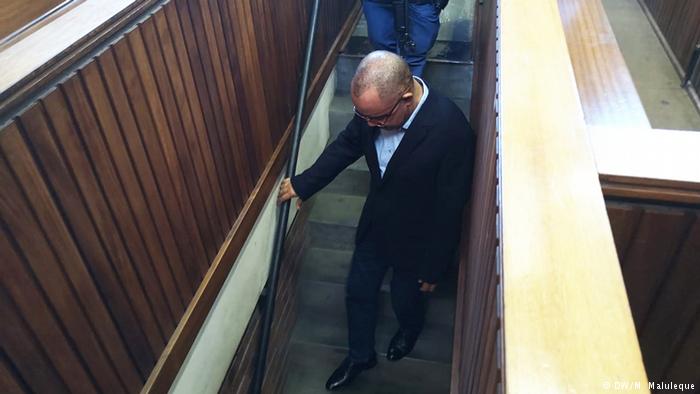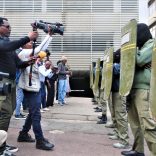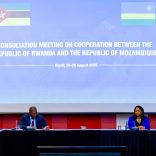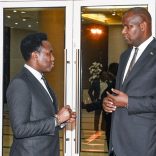Mozambique: Prosecution turns Mondlane's own words against him - AIM
‘Hidden debts’: South Africa shows regional solidarity with extradition of Chang to Mozambique – analyst

File photo: DW
An analyst at the Institute for Security Studies (ISS) says South Africa’s decision to extradite former Minister Manuel Chang to Mozambique reveals regional solidarity between the two countries.
Liesl Louw-Vaudran stresses that this is not the first South African decision to irk the United States in recent months, and “it probably shouldn’t come as a surprise that regional solidarity within Southern Africa has triumphed”.
“Some believe Chang will get off lightly, and the facts won’t be revealed as they would have had the case been heard in a US court,” Louw-Vaudran says. The U.S. has expressed its “great disappointment” in a statement from its embassy in Pretoria.
The issue of Chang’s extradition was sent to South Africa’s Minister of Justice and Correctional Services, Michael Masutha, about two weeks before the country’s May 8 legislative elections, in which the ruling African National Congress (ANC) won a 57.5% majority, its lowest since 2014.
The former Mozambican finance minister, who has been detained in South Africa since December at the request of the United States in the scope of an investigation into hidden debts of more than US$2 billion, continues to enjoy parliamentary immunity in Mozambique, and will not be tried there.
Louw-Vaudran notes that Mozambique has enough problems on its hands, including the aftermath of devastating cyclones and terror attacks in the north of the country, compounded by the fact that those responsible for almost driving the country into bankruptcy may escape with impunity.
“There remains uncertainty about Chang’s immunity as a deputy,” she says.
Twenty people have so far been arrested in connection with the ‘hidden debts’ scandal, including the son of former president Armando Guebuza, but it is admitted that more than 100 individuals may be involved, she adds.
Who will take the blame for the debt has preoccupied many Mozambicans since the scandal broke in 2016, the ISS researcher says.
Since then, the national currency has sunk in value, commodity subsidies have been withdrawn and international donors have suspended aid to the country, leading several civil society organisations to campaign for the debt not to be repaid.
“Those in power clearly don’t want this message to get out,” Louw-Vaudran writes, noting that, earlier this year, campaigners wearing Não Pago T-shirts at a demonstration in Maputo were surrounded by police and told to remove the garments.
Civil society activists told ISS Today that they were under pressure to drop the campaign, especially in the run-up to the October 15 general elections, Louw-Vaudran said, but “the expectation is nevertheless that Mozambicans will be paying off the debt for years to come”.
“As a consequence, the discovery of huge liquid natural gas and oil finds in Cabo Delgado province – the same province experiencing attacks by extremist groups – could turn out to mean very little for ordinary Mozambicans. Already there is speculation that some of the expected proceeds of the gas have been put up as surety for the restructured loan repayments.”












Leave a Reply
Be the First to Comment!
You must be logged in to post a comment.
You must be logged in to post a comment.